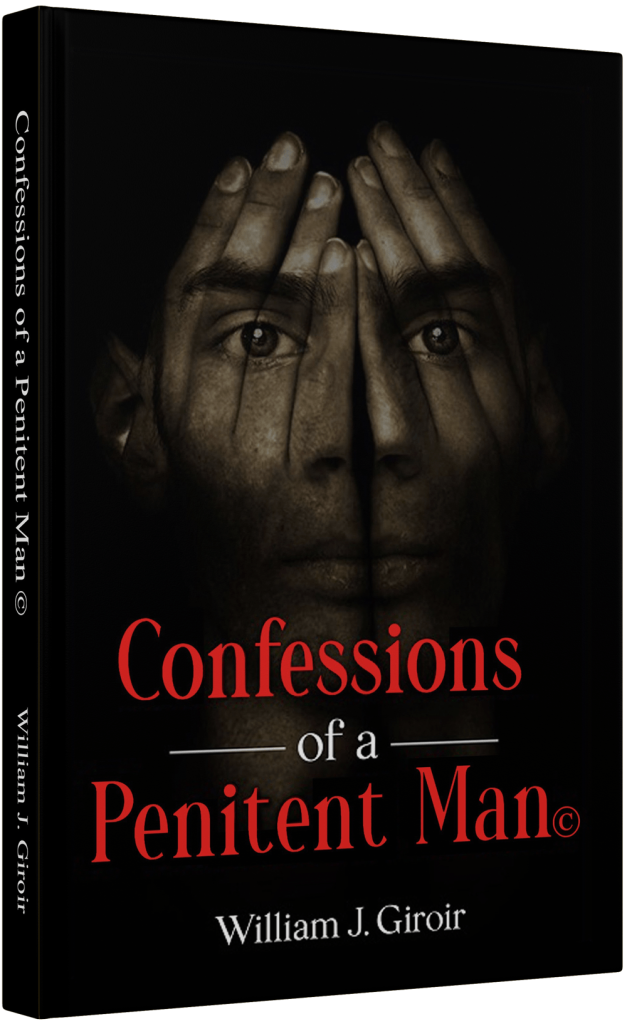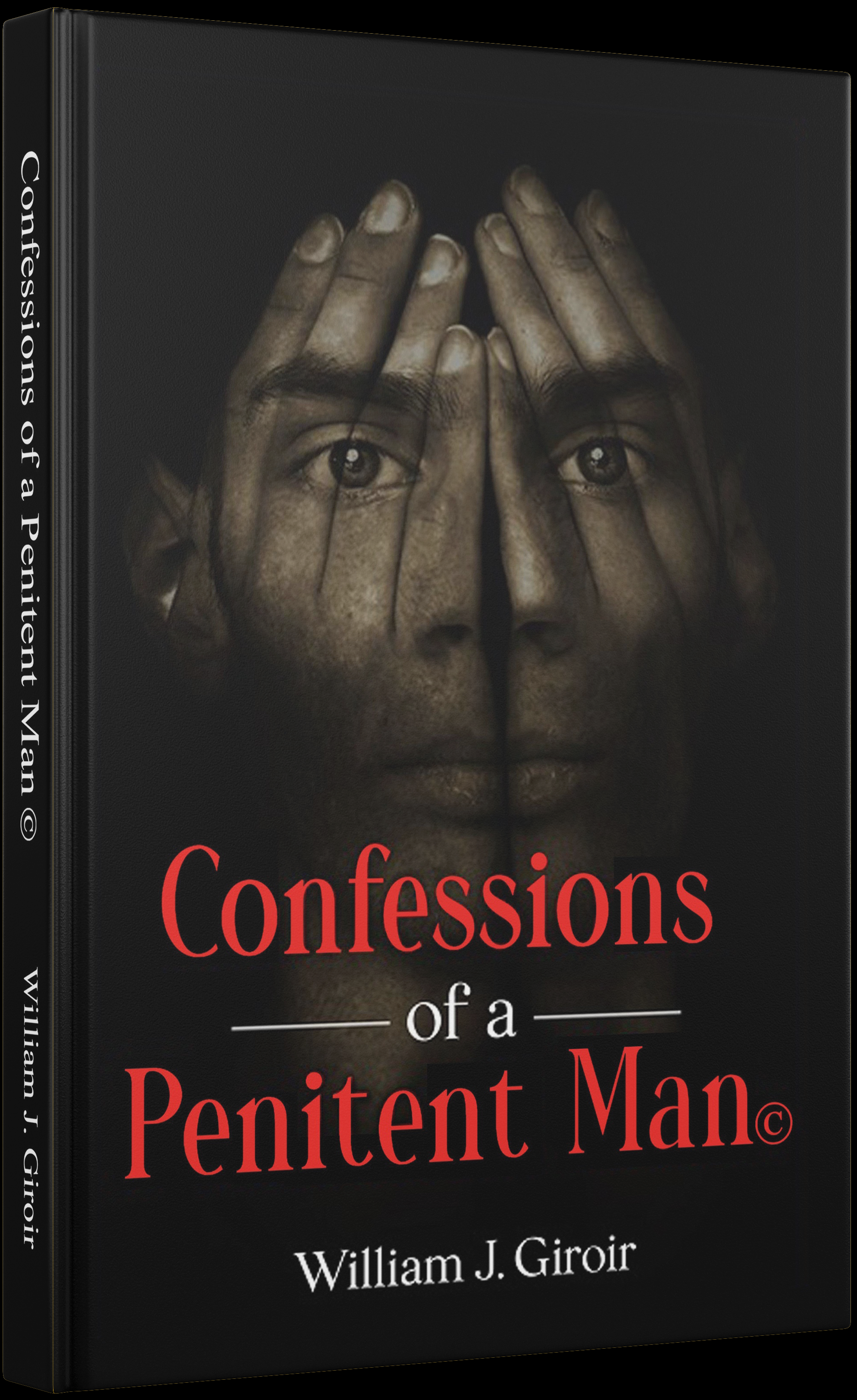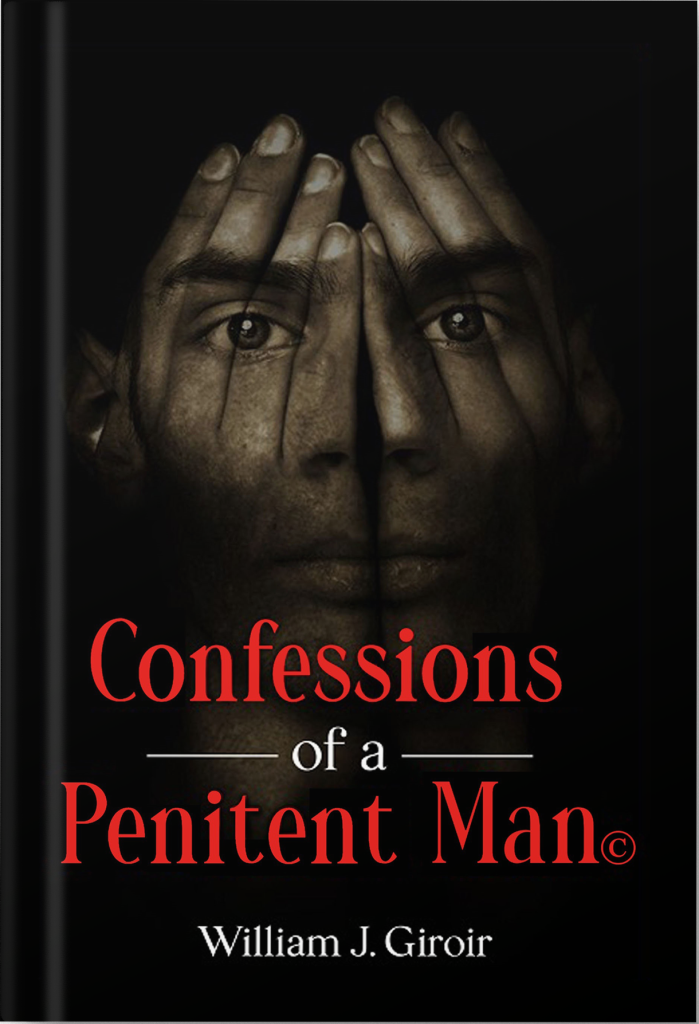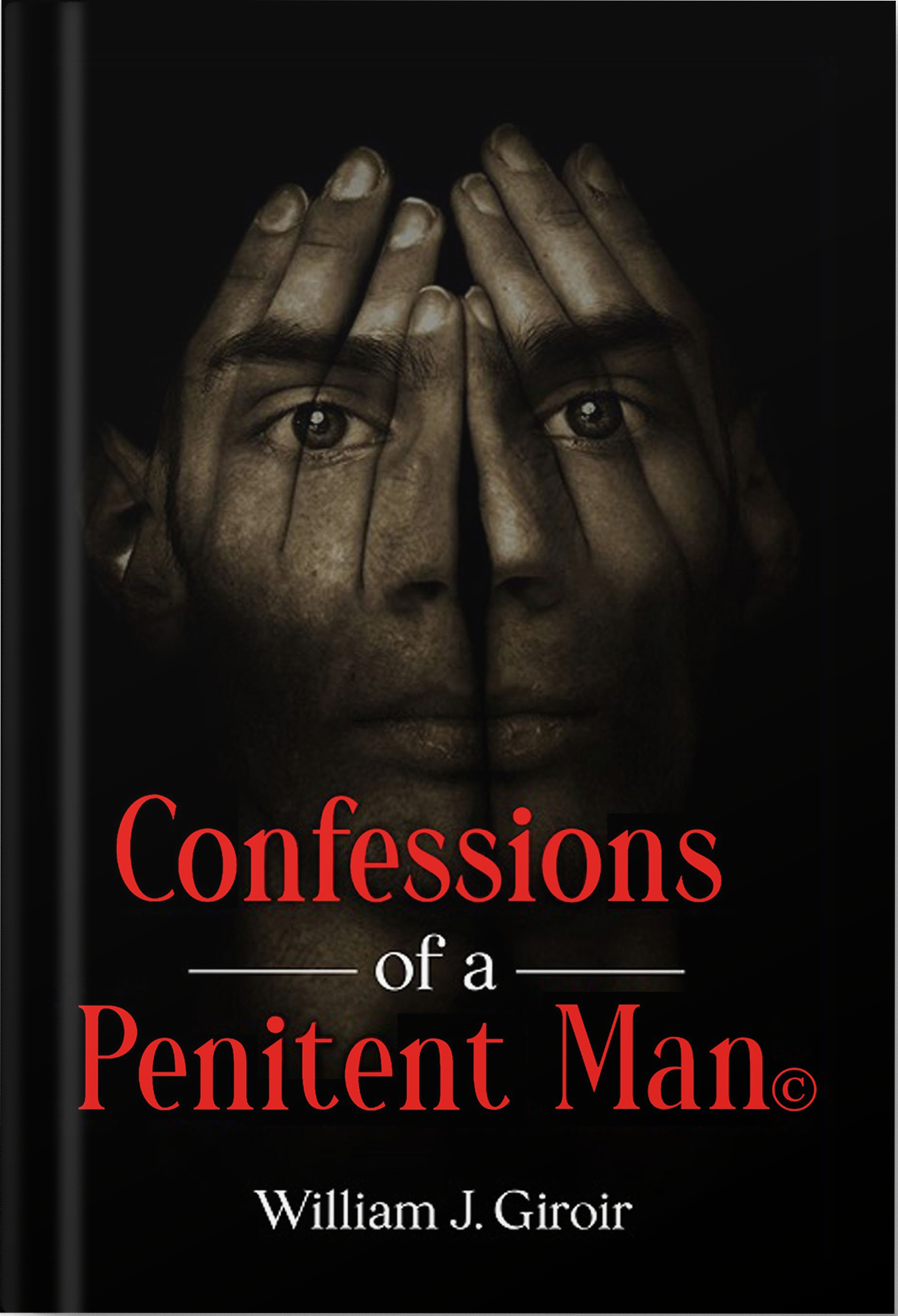Confessions of a Penitent Man©
and The Holy Bible
“Vengeance is Mine; I Will Repay,” says the Lord
©Provided by PsychLove
(Romans 12:19)
This profound statement echoes throughout the Bible, underscoring a critical message: revenge belongs to God alone. In Romans 12:19, the scripture makes it clear: “Do not take revenge, my dear friends, but leave room for God’s wrath, for it is written: ‘It is mine to avenge; I will repay,’ says the Lord.” The message? Retribution is not for us to carry out—it lies within God’s domain. We are called to trust in His timing and His judgment.
A Message from the Author of Confessions of a Penitent Man© William J. Giroir
I wholeheartedly agree. Never seek revenge on the person who has harmed you or your loved ones. Why? Because taking matters into your own hands jeopardizes your morality but also your freedom; you will get caught, and prison will follow.
However, this doesn’t mean you have to ‘roll over and play dead.’ Through Confessions of a Penitent Man©, you no longer have to suppress your anger or your hatred for this person. Here you can release those intense emotions without endangering yourself or going against the Bible. Let the characters in the book bear the weight of your rage. Release your built-up anger, your hate, your grief and your desire for vengeance through the characters actions while preserving your freedom, leaving retribution in the Hands of God.
"Do Not Repay Evil for Evil."
©Provided by PsychLove
(Romans 12:17)
This key teaching from the Bible urges us to break the destructive cycle of retaliation. Verses like Romans 12:17 challenge us to rise above the instinct for revenge. Rather than repaying evil with evil, we’re called to respond with goodness. It’s a difficult path, but one that paves the way for healing and reconciliation.
A Message from the Author of Confessions of a Penitent Man© William J. Giroir
This is true: One should NEVER repay evil for evil.
Let the evil characters in the book repay evil for evil in your place. Picture in your ‘mind’s eye’ …YOU ARE THE CHARACTER! See yourself confronting those who have harmed you or your family. Channel your hatred, anger, and desire for vengeance through their actions while remaining obedient to the Bible’s teachings without risking your life or freedom. It’s not going to be easy to release those buried emotions, but Confessions of a Penitent Man© may help when searching for healing and reconciliation.
"Love your enemies and pray for those who persecute you."
©Provided by PsychLove
(Matthew 5:44)
Of all the teachings in the Bible, this might be the hardest to follow. Matthew 5:44 challenges us to love even those who have hurt us. It’s not about justifying their actions, but about recognizing their humanity and choosing forgiveness over vengeance. By praying for our enemies, we slowly release the grip of anger and resentment, allowing for healing and peace.
A Message from the Author of Confessions of a Penitent Man© William J. Giroir
I understand this teaching and struggle with it too.
I can’t help but want to hurt those who have done me harm from the past and the present. Perhaps this scripture reminds you of someone as well.
Nevertheless, it may be possible to channel your desire for revenge without breaking the law, without jeopardizing your freedom and without breaking this verse from the Bible: Read Confessions of a Penitent Man© and listen to the audiobook, I narrated it myself.
Now, let’s shift gears for a moment. Have you ever watched an action or horror movie that gripped you so tightly, you nearly jumped out of your seat when something happened? As you read or listen to the audiobook, open your mind to that visceral, immersive experience.
In your imaginings, the villain in the book IS the person who harmed you or your family. And (just like at the movies) you BECOME the protagonist! Exacting the vengeance you crave on the person who harmed you or your family (here it’s the villain in the book.) Through the eyes of the character, SEE yourself inflicting the pain this person deserves. In doing so, you may be able to physically and emotionally release the anger and hatred that’s been harboring inside you for so many years.
If you can do this, you might be able to live your life free of the burden of resentment and rage while remaining obedient to the Bible.
"Turn the other cheek"
©Provided by PsychLove
(Matthew 5:39)
This famous phrase from Matthew 5:39 doesn’t suggest that we should become passive victims. Instead, it calls for a response to aggression rooted in non-violence, resisting the urge to retaliate in anger. It’s a challenge to find inner strength and resilience, to rise above the impulse to strike back, and to remain in control of our emotions and actions.
A Message from the Author of Confessions of a Penitent Man© William J. Giroir
I agree but like you, I’m only human. And like you, try to remain calm under stressful circumstances, resisting the urge to retaliate.
I understand completely. My first reaction is to strike back. Maybe in my younger days I’d have acted on it, but not today, not at 74. Still, I can’t just stand by and let the person get away treating someone that way.
This is where Confessions of a Penitent Man© can help. The person who hurt you in real life becomes the antagonist in the book. As you read, see yourself taking your anger, hurt and frustration out on him! Punishing him for what he’s done to you and yours. See yourself dealing out justice in such a way to ensure this person will never hurt anyone again. In addition, by being so engrossed in the action, you can finally let go of the pain and torment you’ve held inside for so long, bringing you a sense of closure and relief.
You may not have literally “turned the other cheek” as this verse recommends but you didn’t take matters into your own hands either. In my opinion, Confessions of a Penitent Man© may provide a platform whereby you can confront and release your anger without violating the teachings of the Bible.
"Be kind and compassionate to one another, forgiving each other, just as in Christ God forgave you."
©Provided by PsychLove
(Ephesians 4:32)
Ephesians 4:32 emphasizes the power of forgiveness as a cornerstone of Christian living. When we forgive, we release ourselves from the heavy burdens of anger and resentment, opening a pathway to healing and reconciliation.
A Message from the Author of Confessions of a Penitent Man© William J. Giroir
How am I to forgive the person who robbed me of a loved one? Of the rich, rewarding future this young man had? Of his laughter? His wit? His company?
This quote from the Bible is personally difficult for me. Looking back I’m sorry, I couldn’t. I needed something more than the power of prayer to rid myself of the hate, the anger and resentment I felt for this person.
For years I took my anger out on family, friends, even strangers. I was scaring everyone around me, they didn’t know from one moment to the next if I’d be civil or angry. I was making friends and family miserable and frightened of me.
I was diagnosed with intermittent explosive disorder, was given medication and therapy.
Then in 1996 I found the Very Reverend Joyce Meyer and its through her teachings, I was able to change.
All of which helped, but the hate and anger I had for the person who killed my loved one was still there.
I needed something physical, something volatile and I found it. Rather, created it.
In Confessions of a Penitent Man© I put the man who killed my relative in the role of the antagonist and I was the good-guy/bad-guy. I was so enthralled in the writing; in my imagination I was the one punishing this person. It was only then, through the actions of a fictional character, I was able to release the anger and resentment I had for this man, which in turn provided a personal space for healing.



